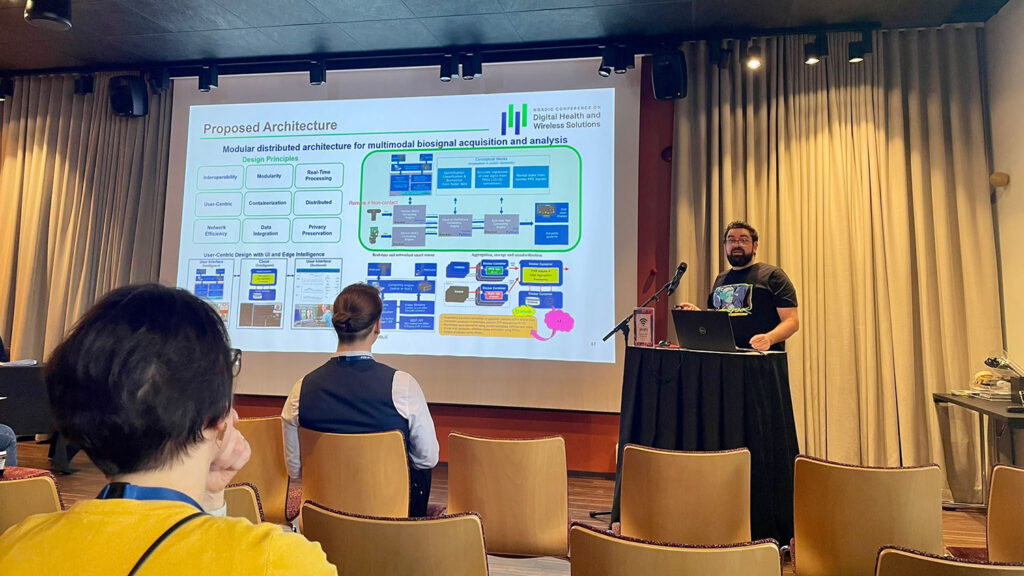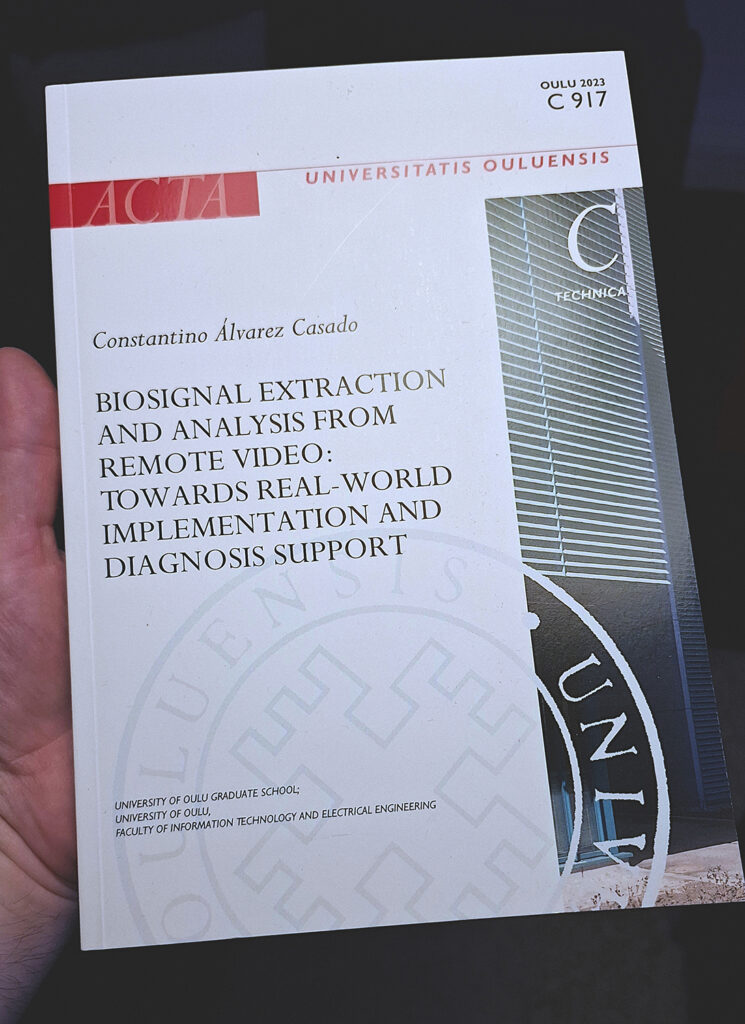Constantino Alvarez Casado completed his doctoral thesis on contactless diagnostics with support from the KAUTE Foundation. His research at the University of Oulu serves primary healthcare as it faces challenges ranging from pandemics to dwindling resources.
Curiosity Leads from Galicia to Finland
There is no snow in Oulu, even though Constantino Alvarez wishes there was. It’s December in what has officially been recorded as the warmest year in history. Constantino explains that in previous years, his hometown would already be blanketed in snow by November, but now the streets remain bare: “People think that as a Spaniard, I must long for warmth, but I’m from the north—Galicia—so rain and cold are familiar to me.”
Casado works as a researcher at the University of Oulu. He came to Finland for work nearly a decade ago and has stayed ever since. “I’m interested in so many things. I think curiosity is my best quality, and it shows in my work and academic history,” Casado says. After completing a bachelor’s degree in Information and Communication Technology in Spain, he pursued a master’s degree in computer vision. Upon graduating, Casado was asked if he would be interested in continuing to a PhD. His answer was an enthusiastic yes.
Contactless Diagnostics: Saving Lives
Now, Casado has completed his doctoral thesis and earned his PhD. The topic of his research is both critical and deeply societal. He has been part of a research group developing contactless diagnostics for primary healthcare, using tools like thermal cameras. “I’ve had the opportunity to work, for example, in the pediatric ward of Oulu University Hospital. There we studied how our applications could help diagnose conditions like pneumonia in children via remote access,” Casado explains.
It’s easy to see that contactless diagnostics—including telehealth consultations—are a glimpse into the future. Scalable, non-contact solutions are essential in tackling pandemics, while shrinking healthcare resources and long distances create additional challenges. Yet, everyone must have access to a doctor. Could Casado’s work help bridge this gap?
“Both in Finland and Spain, there are many sparsely populated areas where access to healthcare is limited. Our goal isn’t to replace human interaction but to improve remote diagnostics,” Casado says. He explains that thermal cameras and pulse oximeters use similar technology to that found in smartwatches. This allows doctors to have more data at their disposal when consulting with patients, even remotely.

Grants Enable Focus on Research
For Casado, research grants mean the ability to focus on his work. “Modern research is incredibly fragmented, and you often have to split your time between many things,” he says. On the other hand, Casado views research as just another job—albeit one guided by particularly precise goal-setting. “Submission deadlines for articles and other milestones can be stressful, but the work itself is truly fascinating.”
When asked for advice for early-career academics, Casado doesn’t hesitate: “When I meet researchers who’ve received their first grants, I tell them to enjoy it,” he laughs. “It’s an incredible opportunity to be able to focus fully on your research.”
Casado completed his doctoral thesis with support from the KAUTE Foundation. He describes applying for grants as a valuable process: “My supervisor encouraged me to apply for funding very early on. He said that even rejections would be beneficial because the process itself sharpens your understanding of your research. He was right. Writing applications has helped me define my work more clearly.” Casado also praises KAUTE’s application questions: “But you should definitely set aside enough time for them!” he adds with a laugh.
Where Technology Meets Medicine
Looking to the future, Casado remains excited: “I enjoy research, especially interdisciplinary projects where technology meets medicine. But I’m open to anything!” Currently, he is part of a healthcare research project in Oulu that focuses on monitoring technologies.To close, it seems only natural to ask: does Casado enjoy medical TV dramas? “House is good. I like how it’s made,” he admits with a grin.

